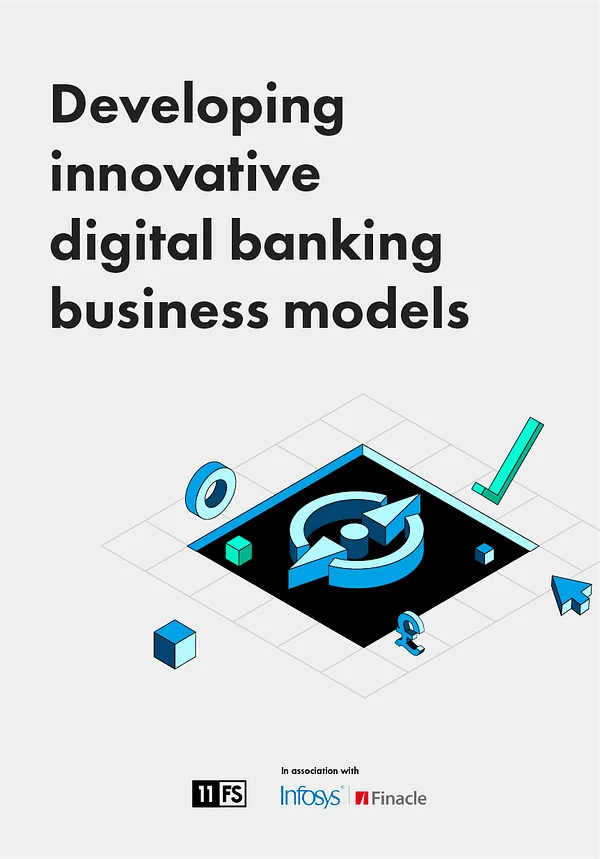How do we stay ahead of fraud and financial crime without compromising the speed, ease, and trust that make instant payments so compelling? In this article, Mastercard's Bryan Sharkey explores it all.
The explosive growth of real-time payments (also known as instant payments) is creating exciting new opportunities for millions of individuals and businesses – including fintechs - and presents significant opportunities for economic growth, as well as boosting financial inclusion. But scammers are quick to exploit new technologies, and the irrevocable nature of these payments makes them an attractive target.
Understandably, this creates concerns. In Thailand, for instance, while adoption is strong and growing, nearly half (45%) of consumers say they worry about being tricked into making payments to scammers. It's a challenge that’s not unique to Thailand or other markets facilitating real-time account-to-account payments.
To me, this isn’t a question of trade-offs. Real-time payments can and should be both fast and secure. Getting there means constantly evolving how we think about risk - and having the technology in place to enable us to stay a step ahead.
Our technology currently powers real-time payments systems in 11 markets around the world. Each time I speak with representatives from these countries, I am reminded anew of the sheer scale and breadth of benefits this technology delivers for governments, businesses and citizens. To put this into context, we saw a 25% increase in transaction volumes from 2023 to 2024, bringing the total number of transactions processed in 2024 to 27.4 billion.
But instant payments – particularly at this scale - are an attractive target for fraudsters, so ensuring these systems succeed in the long term, we need an always-on, coordinated approach to fraud prevention. Building trust isn’t a one-time task - it’s the ongoing need to stay ahead.
Fraud in focus
Fraud, in a variety of sophisticated disguises, is costing markets billions. It’s costing people on a personal level too - in Asia, for example, individual consumers collectively lost nearly £700 billion to digital scams in 2024. Real-time account-to-account payments are particularly vulnerable to fraud because transactions occur instantaneously, leaving little time for intervention or detection.
The figures:
- In the US, fraud losses reached $12.5 billion in 2024; a 25% year-on-year increase with more lost to bank transfers and cryptocurrency payments than all other payment methods combined.
- In the UK, £1.17 billion was lost to fraud in 2024, with Authorized Push Payment (APP) fraud, targeting the irrevocable nature of real-time account-to-account (A2A) payments, responsible for nearly half.
The numbers are stark - but what’s even more alarming is that behind every statistic is a real person whose life has been shaken by fraud. We owe it to consumers to protect them and must recognize this as the moment to stand together and fight this fraud epidemic head-on.
Prevention in action
- The European Union is exploring an expanded liability model across the financial and communications sectors.
- In Brazil, the Pix system is becoming increasingly established as a global benchmark for real-time payments, with the central bank recently bringing in new rules around tax identification to enhance security.
- In the UK, the government introduced new legislation that allows payment service providers to delay payments for up to four days if fraud is suspected.
- Also in the UK, Mastercard is bringing greater protections to Faster Payments with A2A Protect, a new service that will see leading banks collaborate with Mastercard provide consumers with enhanced levels of protection against fraudsters.
While additional security measures are undoubtedly needed, they should not come at the expense of speed and ease. Confirmation of Payee in the UK, while very effective, can in some cases add friction and slow the speed of a transaction. Balancing risk and speed requires a nuanced approach, so we protect users without slowing down the seamless experience they expect.
I can say with confidence that when this level of cross sector collaboration happens, we see a response that is as agile as the threat itself.
Capitalizing on our greatest assets
The strongest defence against fraud comes when public and private sectors work hand in hand to build fraud prevention into real-time payment systems from day one. When safety and security measures are designed into the system from the start, the right protections will be in place to ensure consumers can transact with confidence as the system scales across the globe.
When different sectors work together early on, it lays the groundwork for real teamwork that lasts. This spirit of collaboration can be drawn on repeatedly. It helps everyone tackle challenges - like stopping new types of fraud, reaching underserved groups of people and sparking new ideas as the network grows. By working this way, we can adapt quickly and keep real-time payments safe and effective for everyone.
It is bringing the brightest minds to solve the biggest challenges. And it is ensuring the people who have the authority and expertise to take something from concept to reality are in the room and ready to initiate the action needed to drive change, fast.
In the case of real-time payments, this means regulators, innovators, private and public organisations, including fintechs.
From first-hand experience, I can say with confidence that when this level of cross sector collaboration happens, we see a response that is as agile as the threat itself. In Thailand, for example, the financial services sector is working closely with the government to deliver ‘Thailand 4.0’ – an ambitious initiative to increase economic growth over 20 years, with a key focus being digital transformation in the finance sector. Under the leadership and guidance of the government, private and public sectors have come together to design and launch Prompt Pay – the country's instant payment system – which is revolutionizing the payments landscape.
A coordinated global response
Protecting people and the payments ecosystem isn’t just a challenge, it’s a responsibility.
The positive news is that when the good players work together – this means public and private sectors working collaboratively – whether within a country or across borders – we can outsmart even the most sophisticated fraudsters.
Take Mastercard TRACE, as an example. It’s an AI-powered service we offer that connects financial institutions across jurisdictions to enable them to identify and halt illicit funds instantly, as well as trace financial crime across a payments network. Unlike traditional, siloed detection methods, TRACE draws on timely, large-scale payments data from multiple financial institutions, giving banks a holistic view of suspicious activity across an entire payments network. We recently introduced TRACE in the Philippines, which came at a critical time for the country, which was experiencing a surge in online scams and cybercrime.
Already, 41 domestic banks have joined the system, allowing them to quickly trace dispersed illicit funds, flag money mule activity, and proactively identify accounts linked to scams and money laundering.
Another example is the newly launched A2A Protect in the UK – developed in collaboration with banks to address Authorised Push Payment fraud, one of the most damaging threats to instant payments. By combining AI-driven risk scoring with shared fraud intelligence and clear processes for recovering funds, it helps strengthen consumer protection without undermining the speed and convenience people value in real-time payments.
AI and machine learning, as well as real-time intelligence sharing and instantaneous risk assessments are some of the ways we can ensure consumer protections are at the core of real-time systems. Building this in from the start paves the way for a more coordinated, impactful global response to financial fraud.
With the technology at our disposal, an increasingly coordinated network of good actors, and a refusal to give up, we can stay one step ahead and strike the right balance between speed and security.
The fight is far from over.
Read now: Lessons from real-time markets
Mastercard's whitepaper ‘Uniting against account-to-account fraud. Lessons from real-time markets’ explores solutions and strategies to fighting back against the rising tide of financial fraud in real-time payments.
It offers insights and recommendations to stakeholders across industries as they work together to safeguard the integrity of real-time payments and protect consumers and businesses from fraudulent actors. Download your copy here.





.svg)
.svg)






